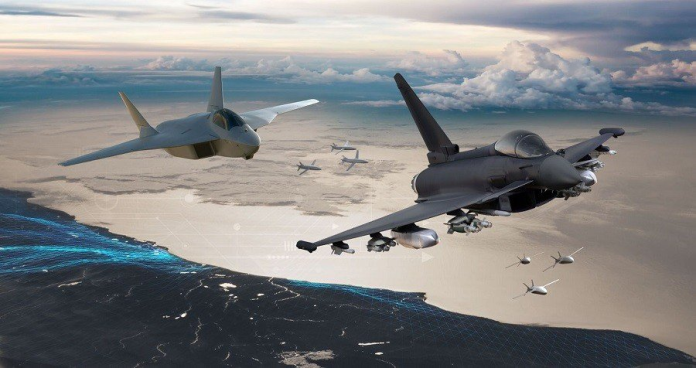The ambitious Future Combat Air System (FCAS) programme, a cornerstone of European defence cooperation, has become a source of significant tension between France and Germany, casting a shadow over its future, according to Euractiv.
Despite public squabbling and fundamental disagreements, analysts suggest that both nations are effectively locked into an unhappy industrial marriage, as walking away would come at an untenable political and financial cost, leaving the EU without a sovereign option for a next-generation stealth fighter.
The project, initially launched in 2017 by French President Emmanuel Macron and Germany’s then-chancellor Angela Merkel, with Spain joining later, aims to develop a sophisticated sixth-generation stealth fighter jet integrated with autonomous drones and a digital combat cloud.
The programme is now approaching a critical milestone later this year as it transitions from the planning phase to building a prototype, a juncture that offers one of the few opportunities to renegotiate terms. According to Bertrand de Cordoue, an aerospace expert at the Jacques Delors Institute, “Germany and France are at a crossroads where if they decide to invest more, they will make the project irreversible.”
Forced industrial partnership
The most visible strain has emanated from the fraught relationship between the programme’s lead industrial contractors, France’s Dassault Aviation and Germany’s Airbus Defence, entities largely forced together by high-level political accords.
The struggle for leadership has been stark, with Dassault CEO Éric Trappier asserting in June that his company could “go at it alone” on FCAS. This sentiment was met with a pithy retort from Jean-Brice Dumont of Airbus Defence, who noted to journalists at the Paris Air Show, “We are competitors that have to marry.”
Several industry observers agree that, despite this animosity, the two aerospace giants have little choice but to find a way to collaborate.
The political imperative to succeed remains strong. Both Emmanuel Macron and German Chancellor Friedrich Merz reiterated their support for the programme in July. Their defence ministers are tasked with presenting a plan to reconcile differences and advance the €100 billion project by the end of August.
“For Macron, the aim is to cement this project before he has to leave office,” de Cordoue stated.
Similarly, for Chancellor Merz, who has positioned himself as a advocate for deeper European defence cooperation and a warmer relationship with France, the failure of FCAS would be a profound blow to his ambitions.
